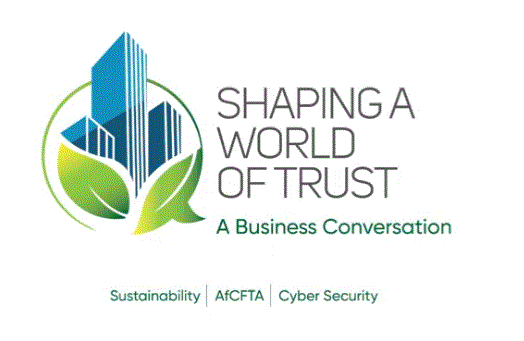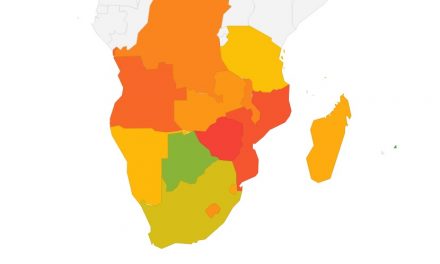
Sustainability is everyone’s business – panel discussion on continent’s future

Johannesburg — The 2021 Shaping a World of Trust virtual business conversation, hosted by Bureau Veritas, emphasized the need for collaboration between governments, the private sector and consumers if the continent were to meet its sustainability goals, including food security, cyber security and robust intra-Africa trade.
During the Fostering a Sustainable World session, panellists felt that sustainability was no-longer the purview of research. As climate change manifested itself, it has become everyone’s business from consumers, to companies, investors and governments.
For companies to have good intentions about sustainability was no longer sufficient. They have to be able to prove they are walking- the-talk, and this is done through certification, said Marc Roussel, Senior Vice President Bureau Veritas (BV) Africa. This can be done at every step of a company’s supply chain.
In Africa sustainability must include inclusivity so everyone is part of rewriting the future. Companies need to value the good behaviour and initiatives of employees who are also citizens and carry the sustainability message to others, said Jean-Claude Lasserre, Africa CEO of Saint-Gobain, a building material supplier.
Roussel suggested that sustainable goals could be achieved within an organization by defining the ideal target and different levels of participation so everyone clearly understands what is acceptable and what is not; and everyone from employees to customers can play their role.
Bureau Veritas was also working closely with developers of innovative green solutions, where third party design testing and approval was required as a first step to eliminate as far as possible long-term risks and mistakes. An example was the recent release of a principle approval for a new offshore floating solar platform.
Mitigating enterprise risks – the war against cyber criminals
“With a 350% increase in ransomware attacks in the past year, along with an increase in phishing and social engineering, everyone needs to understand their cyber security risks”, said Clayton Kyd, head IT & IS Africa, Bureau Veritas.
Amit Roy, Atos head of Cybersecurity Practice for Middle-East, Turkey and Africa added “The biggest risk for all businesses is not understanding their cyber risks, safety management and having a backup plan to ensure the company recovers quickly from a cyber attack.” Roy pointed out that the convergence of IT, Internet of Things and cloud computing is also adding to the complexity of cyber security and that it is vital to have a defined plan for this convergence.
Challenges with cyber security include companies being unable to benchmark their boundaries that need to be protected; lack of awareness of cyber security and lack of user education and cyber skills to design a risk management strategy.
African Continental Free Trade Area Agreement
The African Continental Free Trade Area Agreement (AfCFTA) focuses on phasing out the tariffs on 90% of goods exchanged between African countries; eliminating non-tariff barriers; the definition of rules of origin and a deal on customs cooperation and trade remedies.
While the agreement holds enormous potential to increase intra-continental trade from the current 16% to around 60%, it comes with challenges that need political will to overcome.
For Babajide Sodipo, Senior Manager African Union/AfCFTA Relations and Trade Policy at Afrexim Bank, the agreement offers such a transformational opportunity for the continent that it has to be implemented despite the challenges, which include language and cultural barriers, different legal systems and lack of capacity to understand and implement the trade agreement. “AfCFTA is not a magical tool, it is a legal agreement and countries have to clean up their business environment, and increase productive capacity to make it work.”
The goal of AfCTFA is clearly in-line with the World Trade Organization’s best practices and will harmonize rules and standards across the 37 signatory countries, said Jean-Michel Perret, Bureau Veritas Government Services Director Southern Africa.
Partnerships between the public and private sector could help governments successfully overcome the challenges of AfCTFA. For example the implementation of a single window platform automates, optimizes and dematerializes customs processes, thereby eliminating many of the risks of a manual system.
The challenge for manufacturers exporting across Africa lay in the standards, achieving quality and productivity as well as overcoming language barriers, said Florence Muleya Chief Executive, Zambian Association of Manufacturers. While AfCFTA held enormous potential for African manufacturers the devil is in the details. Achieving the agreement’s ideals would require co-operation, with large companies assisting smaller companies to overcome their challenges.
Kuseni Dlamini, Chairman of Massmart Holdings, a pan-African retail company, was upbeat about the agreement, saying that Africa has an opportunity to learn from other continental trade blocs and the possibility exists for Africa to become a first world regional bloc.
Food Safety
Collaboration across a wide range of public and private sector stakeholders, including those representing consumers, was a key element of the functioning of the Food Safety Initiative (FSI): Consumer Goods Council of SA.
The FSI collaborates closely with relevant national authorities, stakeholders and experts in order to provide objective, independent scientific advice, as well as assistance in relation to related legislation. It is dedicated to promoting the safety, responsible manufacturing, importation, marketing and selling of food and beverages (Alcoholic and non-alcoholic).
Highlighting the successes of the FSI through collaboration, FSI Executive, Matlou Setati, said the implementation of the Department of Health’s salt reduction regulations saw manufacturers working together and sharing research to mitigate and resolve implementation hurdles. Despite the good intentions of the regulations in improving the health and nutrition of the population; during production the quality and integrity of products was affected and the council had to ask for some extensions to ensure product reformulations meets safety and quality standards and customer satisfaction.
The full panel discussion on Shaping a World of Trust can be viewed at https://bit.ly/3tPErFL
Distributed by APO Group on behalf of Bureau Veritas.












































